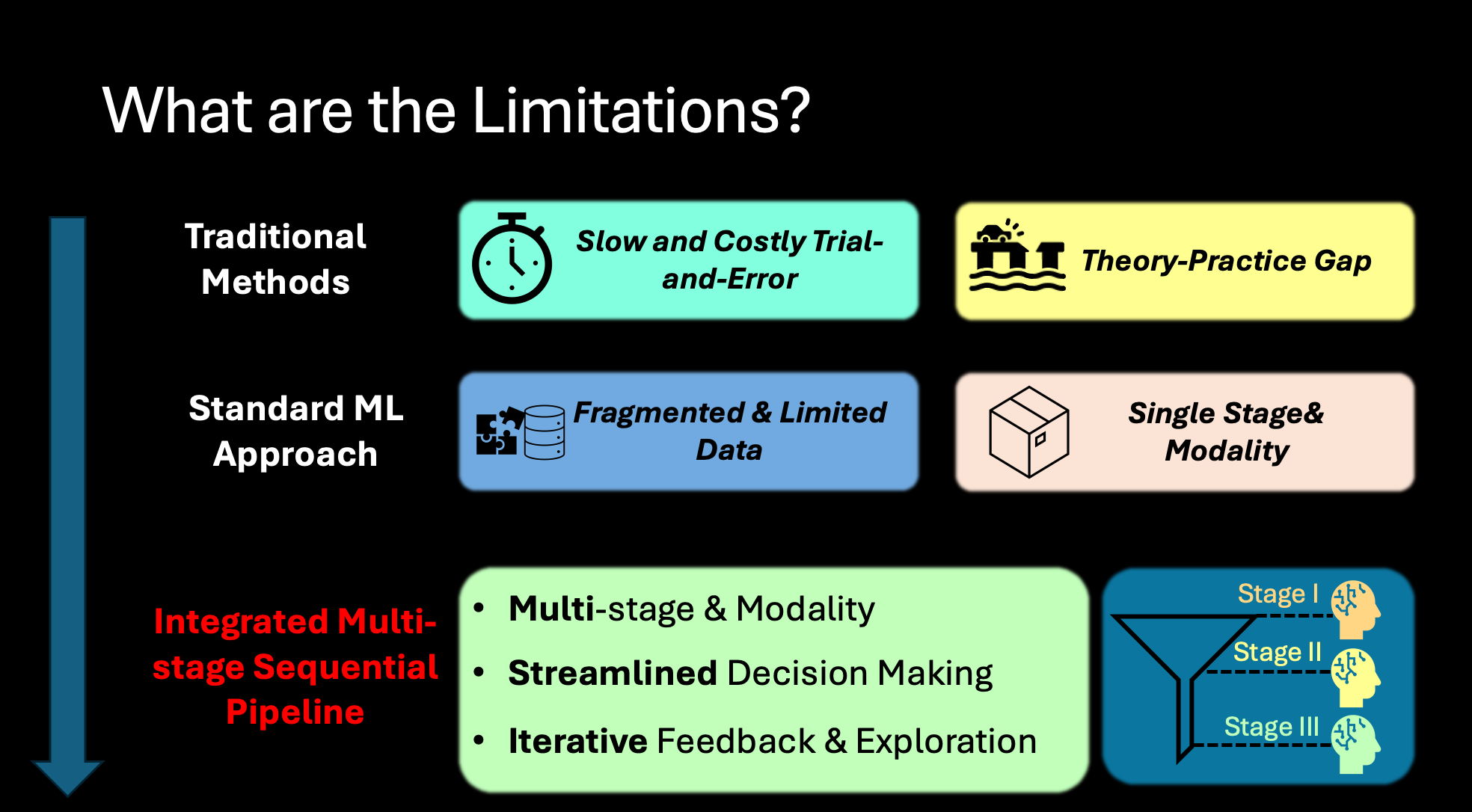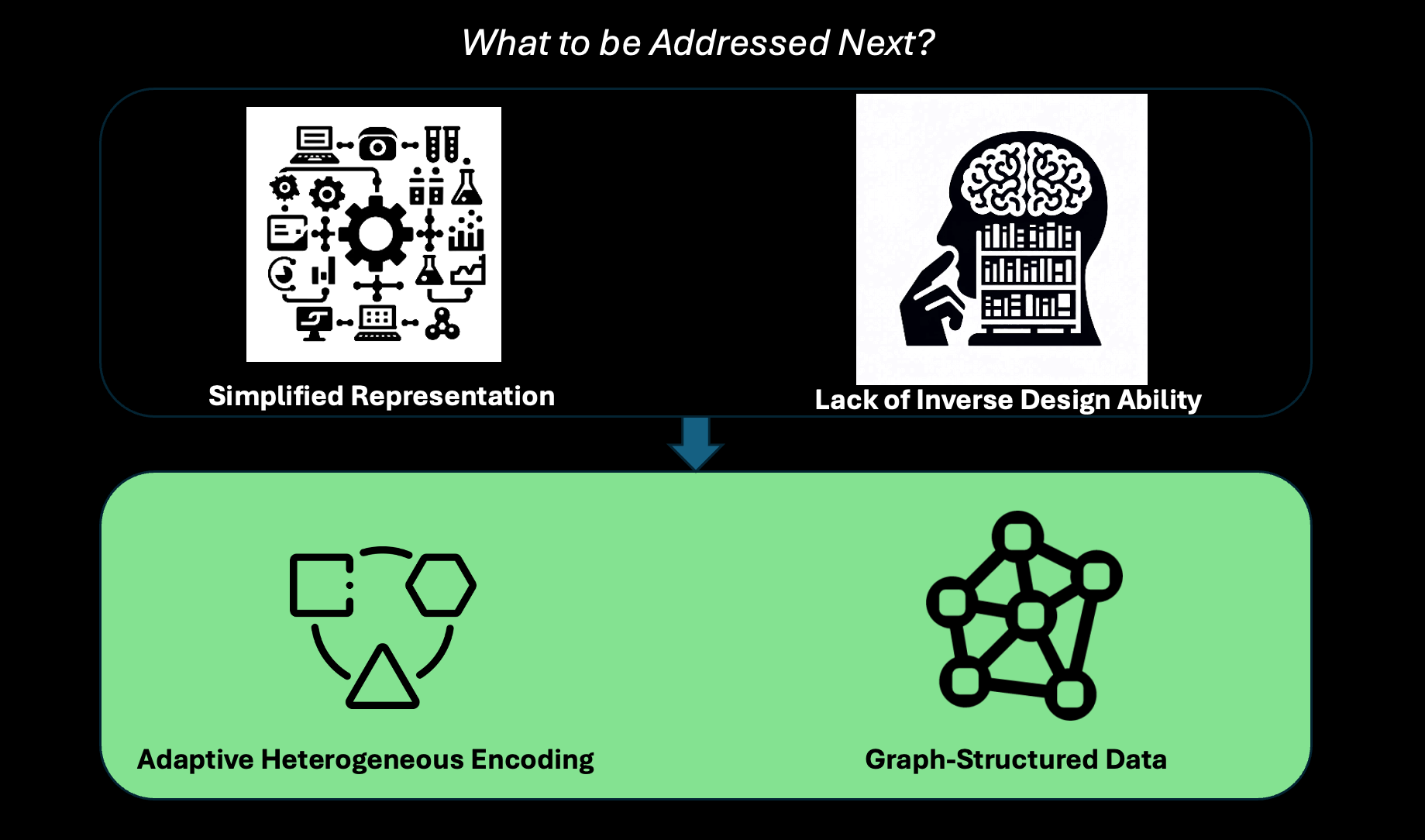Traditional materials discovery is slow and expensive. Standard ML approaches remain fragmented. I'm building integrated AI systems that can autonomously navigate the full research cycle.
Research agents that can:
- Conduct deep literature review with local RAG systems
- Generate and prioritize research hypotheses
- Design experiments through active learning
- Interpret results and iterate autonomously
Our Deep Tree of Research (DToR) agent achieved ~79% win rate against commercial deep-research systems across 27 nanomaterials topics, running entirely on local consumer hardware.

Unifying heterogeneous scientific data:
- Text from papers, patents, and databases
- Molecular graphs and crystal structures
- Microscopy images and spectra
- Experimental measurements and simulations
Goal: Enable AI systems to reason across modalities the way human researchers do.

Electrocatalysis
Accelerated discovery of OER/HER catalysts for clean hydrogen production.
Chemical Sensing
Neuromorphic approaches for FET sensor design and environmental monitoring.